第17章 A NOTE ON REALISM(3)
Nothing would find room in such a picture that did not serve, at once, to complete the composition, to accentuate the scheme of colour, to distinguish the planes of distance, and to strike the note of the selected sentiment; nothing would be allowed in such a story that did not, at the same time, expedite the progress of the fable, build up the characters, and strike home the moral or the philosophical design.But this is unattainable.As a rule, so far from building the fabric of our works exclusively with these, we are thrown into a rapture if we think we can muster a dozen or a score of them, to be the plums of our confection.And hence, in order that the canvas may be filled or the story proceed from point to point, other details must be admitted.They must be admitted, alas! upon a doubtful title; many without marriage robes.Thus any work of art, as it proceeds towards completion, too often - I had almost written always - loses in force and poignancy of main design.Our little air is swamped and dwarfed among hardly relevant orchestration; our little passionate story drowns in a deep sea of descriptive eloquence or slipshod talk.
But again, we are rather more tempted to admit those particulars which we know we can describe; and hence those most of all which, having been described very often, have grown to be conventionally treated in the practice of our art.These we choose, as the mason chooses the acanthus to adorn his capital, because they come naturally to the accustomed hand.The old stock incidents and accessories, tricks of work-manship and schemes of composition (all being admirably good, or they would long have been forgotten) haunt and tempt our fancy, offer us ready-made but not perfectly appropriate solutions for any problem that arises, and wean us from the study of nature and the uncompromising practice of art.To struggle, to face nature, to find fresh solutions, and give expression to facts which have not yet been adequately or not yet elegantly expressed, is to run a little upon the danger of extreme self-love.Difficulty sets a high price upon achievement; and the artist may easily fall into the error of the French naturalists, and consider any fact as welcome to admission if it be the ground of brilliant handiwork; or, again, into the error of the modern landscape-painter, who is apt to think that difficulty overcome and science well displayed can take the place of what is, after all, the one excuse and breath of art - charm.A little further, and he will regard charm in the light of an unworthy sacrifice to prettiness, and the omission of a tedious passage as an infidelity to art.
We have now the matter of this difference before us.The idealist, his eye singly fixed upon the greater outlines, loves rather to fill up the interval with detail of the conventional order, briefly touched, soberly suppressed in tone, courting neglect.But the realist, with a fine intemperance, will not suffer the presence of anything so dead as a convention; he shall have all fiery, all hot-pressed from nature, all charactered and notable, seizing the eye.The style that befits either of these extremes, once chosen, brings with it its necessary disabilities and dangers.The immediate danger of the realist is to sacrifice the beauty and significance of the whole to local dexterity, or, in the insane pursuit of completion, to immolate his readers under facts; but he comes in the last resort, and as his energy declines, to discard all design, abjure all choice, and, with scientific thoroughness, steadily to communicate matter which is not worth learning.The danger of the idealist is, of course, to become merely null and lose all grip of fact, particularity, or passion.
We talk of bad and good.Everything, indeed, is good which is conceived with honesty and executed with communicative ardour.But though on neither side is dogmatism fitting, and though in every case the artist must decide for himself, and decide afresh and yet afresh for each succeeding work and new creation; yet one thing may be generally said, that we of the last quarter of the nineteenth century, breathing as we do the intellectual atmosphere of our age, are more apt to err upon the side of realism than to sin in quest of the ideal.
Upon that theory it may be well to watch and correct our own decisions, always holding back the hand from the least appearance of irrelevant dexterity, and resolutely fixed to begin no work that is not philosophical, passionate, dignified, happily mirthful, or, at the last and least, romantic in design.